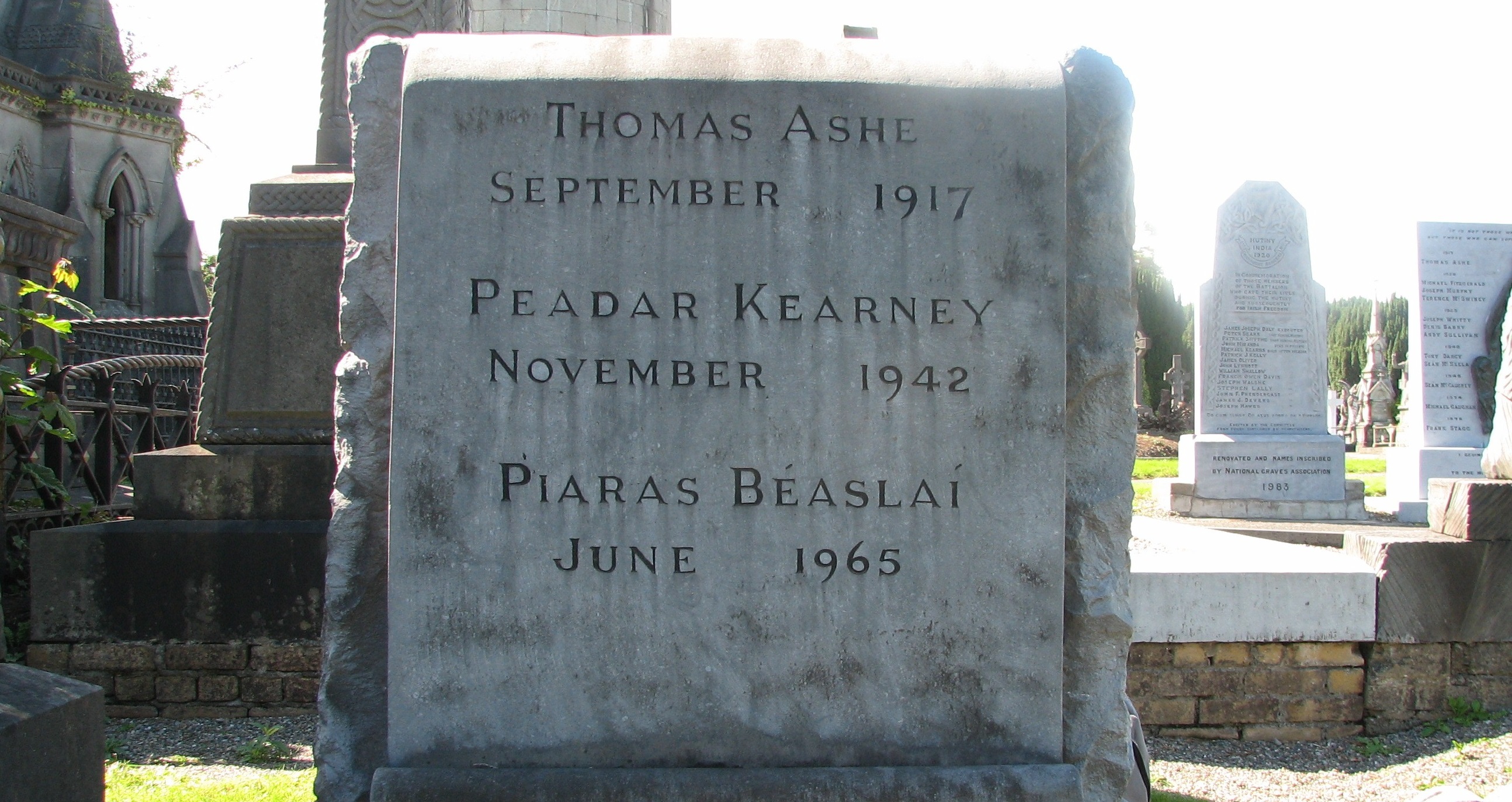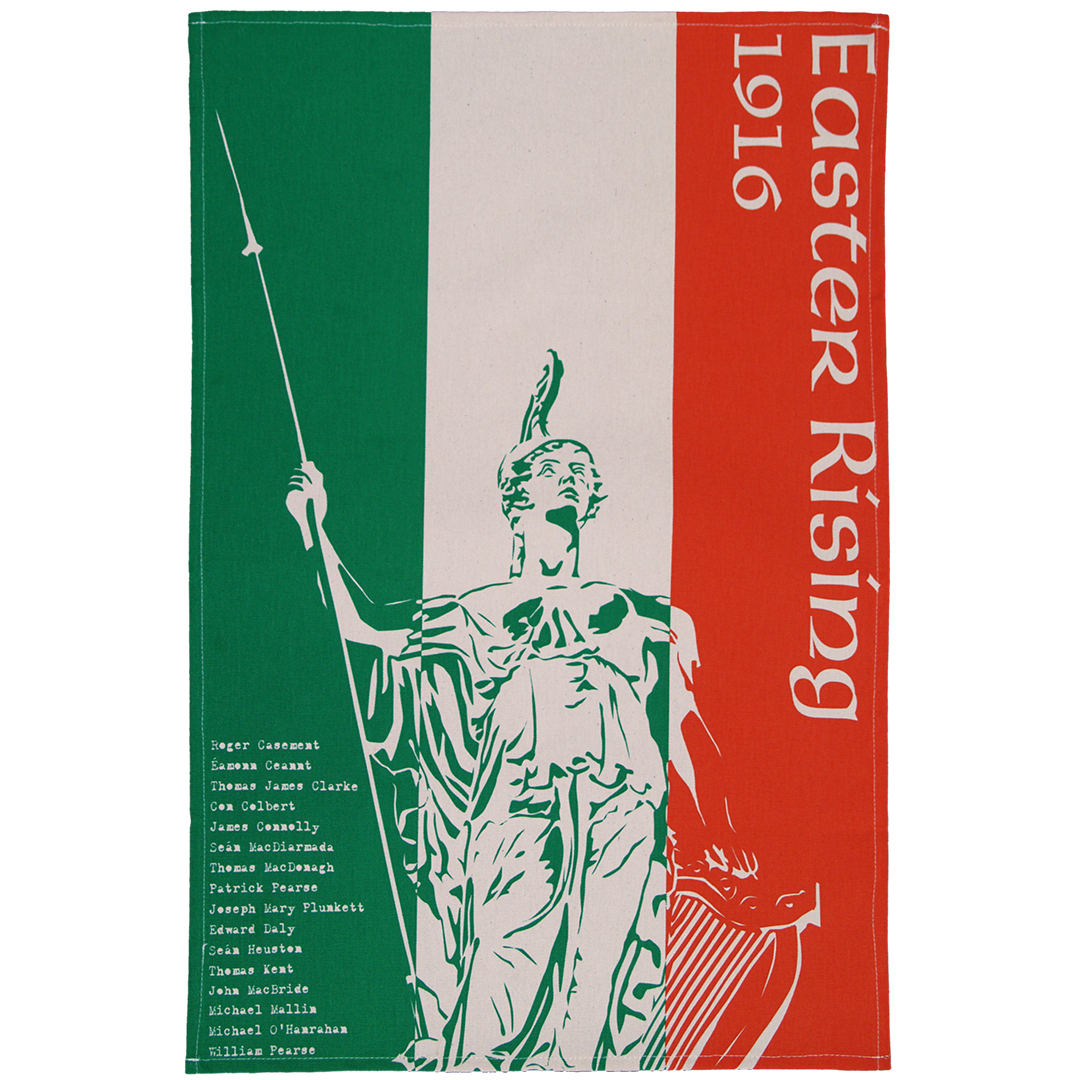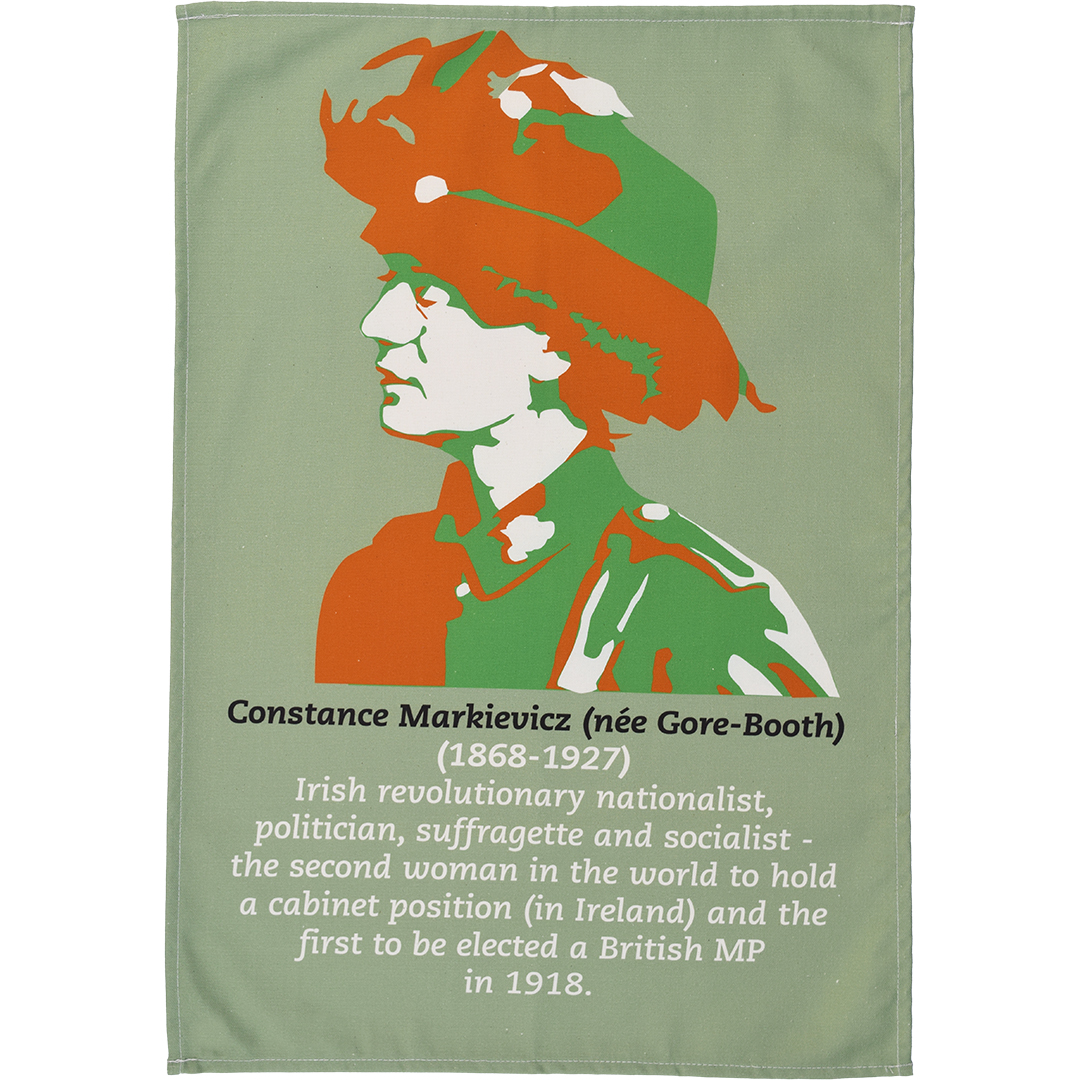The ultimate price for Irish freedom
Posted by Pete on 25th Sep 2023

Thomas Ashe's death in a British prison on this day in 1917 inspired the Irish Republican movement...
The hunger strike has a long history in the Irish republican movement.
Nowadays, the tactic is most associated with Bobby Sands and the other 1980s hunger strikers.
But imprisoned Irish republicans also refused to eat as a form of political protest in the Irish War of Independence during the 1910s and 1920s.
Thomas Ashe was the most famous hunger striker of that era.
Ashe's death in a British prison in Dublin – on this day in 1917 – mobilised tens of thousands more people to fight for Irish independence.
Ashe co-founded the Irish Volunteers, the main fighting force in the 1916 Easter Rising
Click to view the Easter Rising tea towel
Thomas Ashe was born in rural County Kerry in 1885.
He took to the Irish cultural revival movement of the early twentieth century like a fish to water.
The 'Gaelic revival' begun in the late nineteenth century was an important arm of the growing anticolonial struggle against British rule in Ireland.
One strategy of British domination had been efforts to mock and eradicate Irish culture. The Gaelic revival was how the Irish people fought back.
Thomas Ashe, who was working as a schoolteacher in County Dublin from 1908, set up branches of the Gaelic League in nearby villages, and he championed Irish music and sport.
But British rule in Ireland couldn't be overthrown by cultural struggle alone.
Ashe was a supporter of the Irish working class in its struggle against British and British-aligned bosses.
During the Dublin Lockout of 1913, he backed Jim Larkin's strikers in the city.
"We are all here on Larkin's side. He'll beat the hell out of the snobbish, mean, seonín [a pejorative for Irish people who prefer English culture] employers yet, and more power to him."
And Ashe also supported the mass, armed movement for Irish autonomy which began to emerge in 1913.
When the Liberal government in Britain moved towards passing an Irish Home Rule bill, right-wing Ulster Unionists formed a paramilitary army to block the move.
In response, Irish nationalists created the Irish Volunteers to ensure home rule – the popular demand of the Irish people – would be enacted.
The Volunteers would go on to become the main fighting force in the Easter Rising of 1916, and then the Irish Republican Army during the War of Independence. Thomas Ashe was a cofounder.
Irish revolutionary leader Michael Collins worked alongside Thomas Ashe
Click to view the Michael Collins tea towel
When the Easter Rising was launched in April 1916, Ashe commanded a battalion of Irish Volunteers outside Dublin.
Ashe and his soldiers fought courageously, and won one of rebels' few major victories at Ashbourne in County Meath.
But when the struggle in Dublin was defeated, he obeyed his commanders' order to surrender.
Ashe's initial death sentence from the British courts was commuted to life in prison. Then, in June 1917, he was released as part of an amnesty which the British government had been forced to grant by the United States, its new ally in the First World War.
But Ashe was soon back in prison regardless.
He was arrested for a seditious speech in August 1917, in County Longford. The emerging republican leader, Michael Collins, had been speaking at the same rally.
Imprisoned at Mountjoy in Dublin, Ashe demanded 'Prisoner of War' status for himself and his republican comrades.
Whereas the British state tried to criminalise the Irish anticolonial fighters as rebels, kidnappers, and murderers, they demanded the status and rights of belligerents captured in a war of independence against an occupying foreign power.
On 20th September 1917, the republican prisoners in Mountjoy launched a hunger strike.
This was the era of radical women's suffragism in Ireland and Britain. Liberation movements were teaching and borrowing tactics from one another.
Irish republicans like Constance Markievicz were also campaigners for women's suffrage
Click to view the Constance Markievicz tea towel
In Mountjoy, British prison guards treated Irish hunger strikers as brutally as they did the suffragettes, too.
Beds and boots were removed, then prisoners were subjected to violent and invasive force-feeding.
Thomas Ashe was murdered by a bout of force-feeding on 25th September 1917. The inquest in Dublin blamed his death on the:
"…inhuman and dangerous operation performed on the prisoner, and other acts of unfeeling and barbaric conduct."
Ashe's death became an immediate rallying point for the Irish republican movement globally.
30,000 outraged Irish citizens attended his funeral on 30 September. Michael Collins gave the eulogy.
The British Empire, as ever, failed to appreciate that freedom struggles do not give in to violence.



